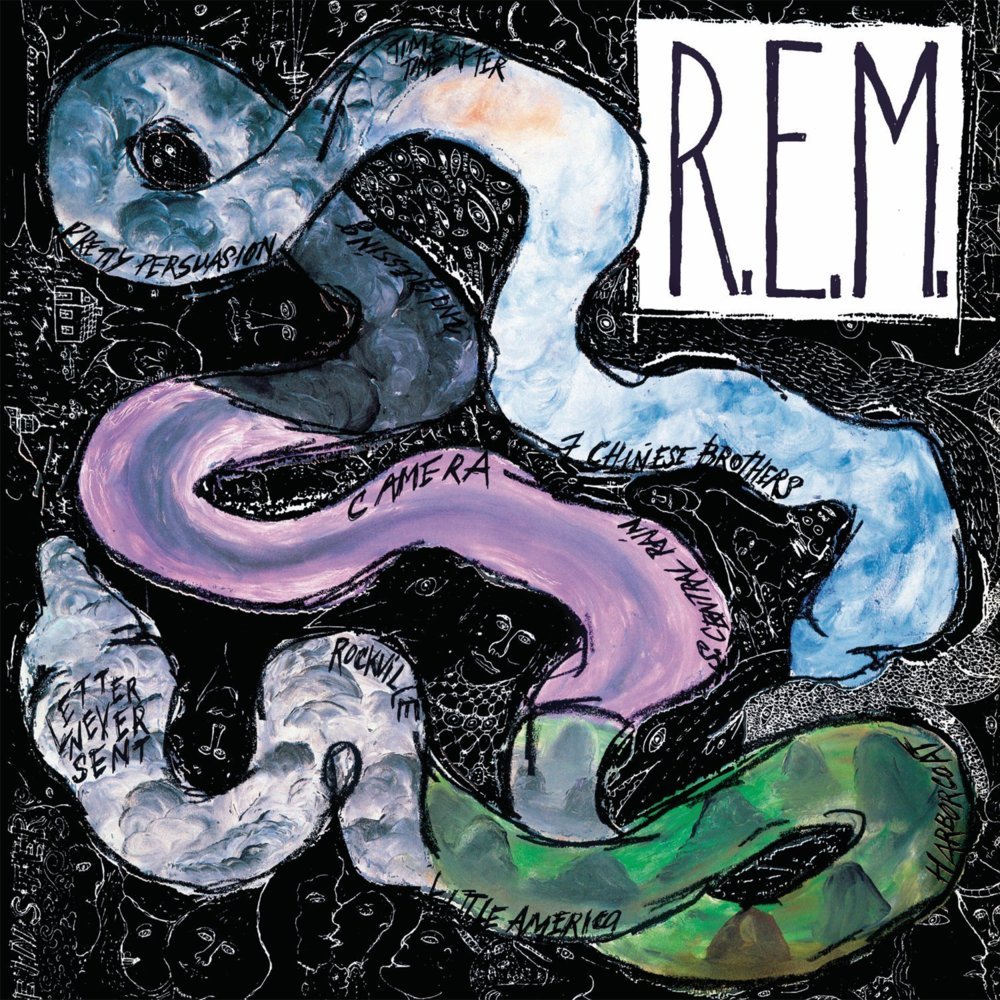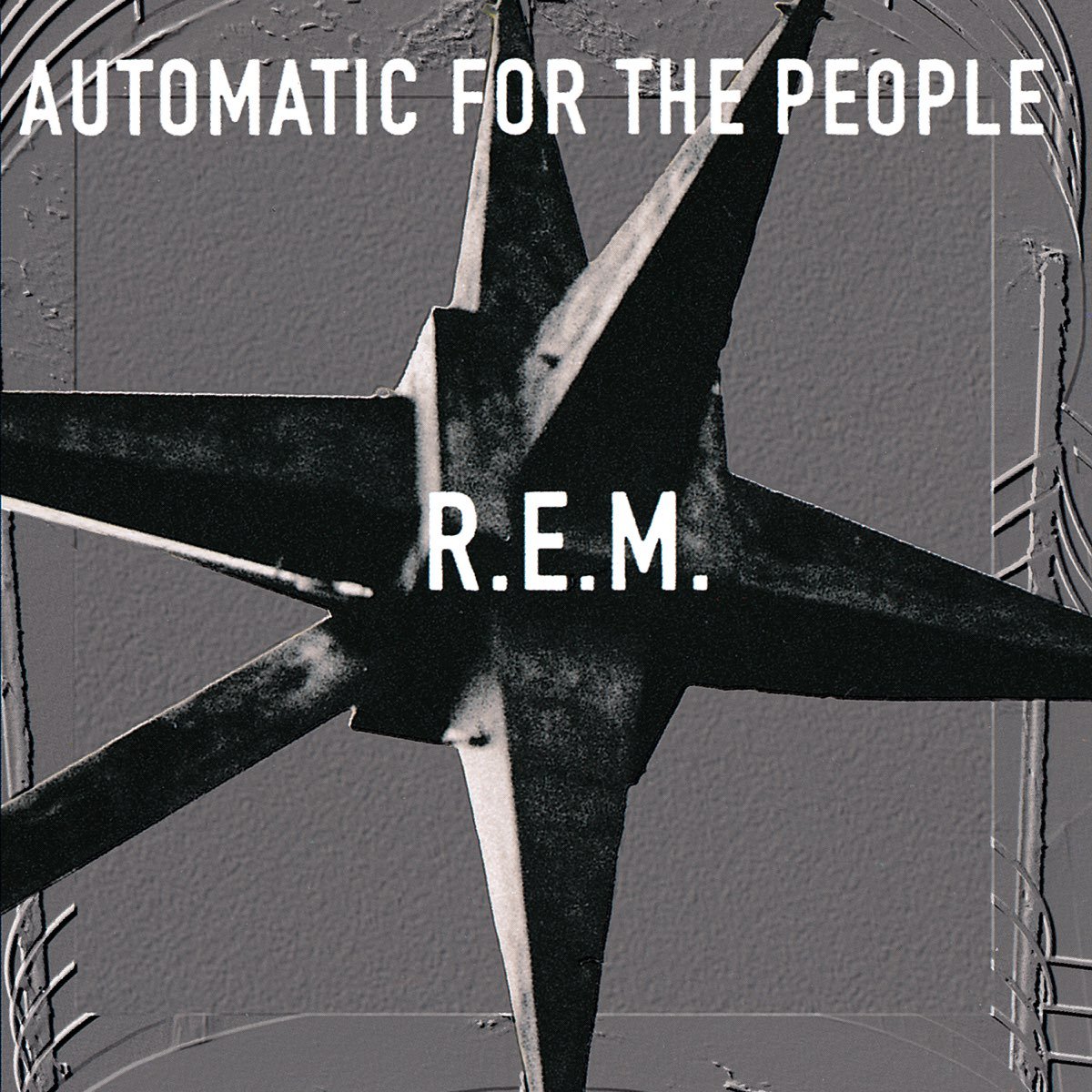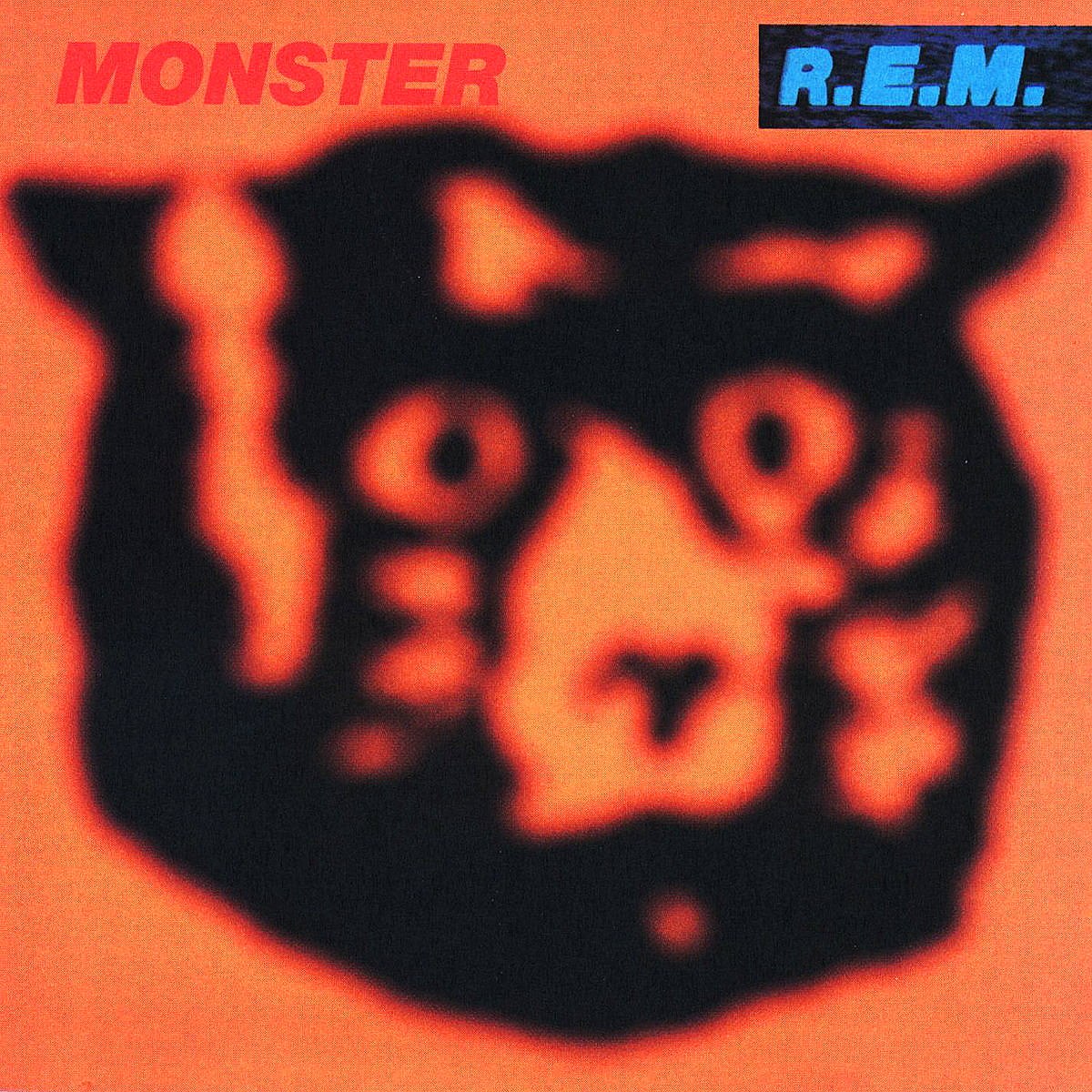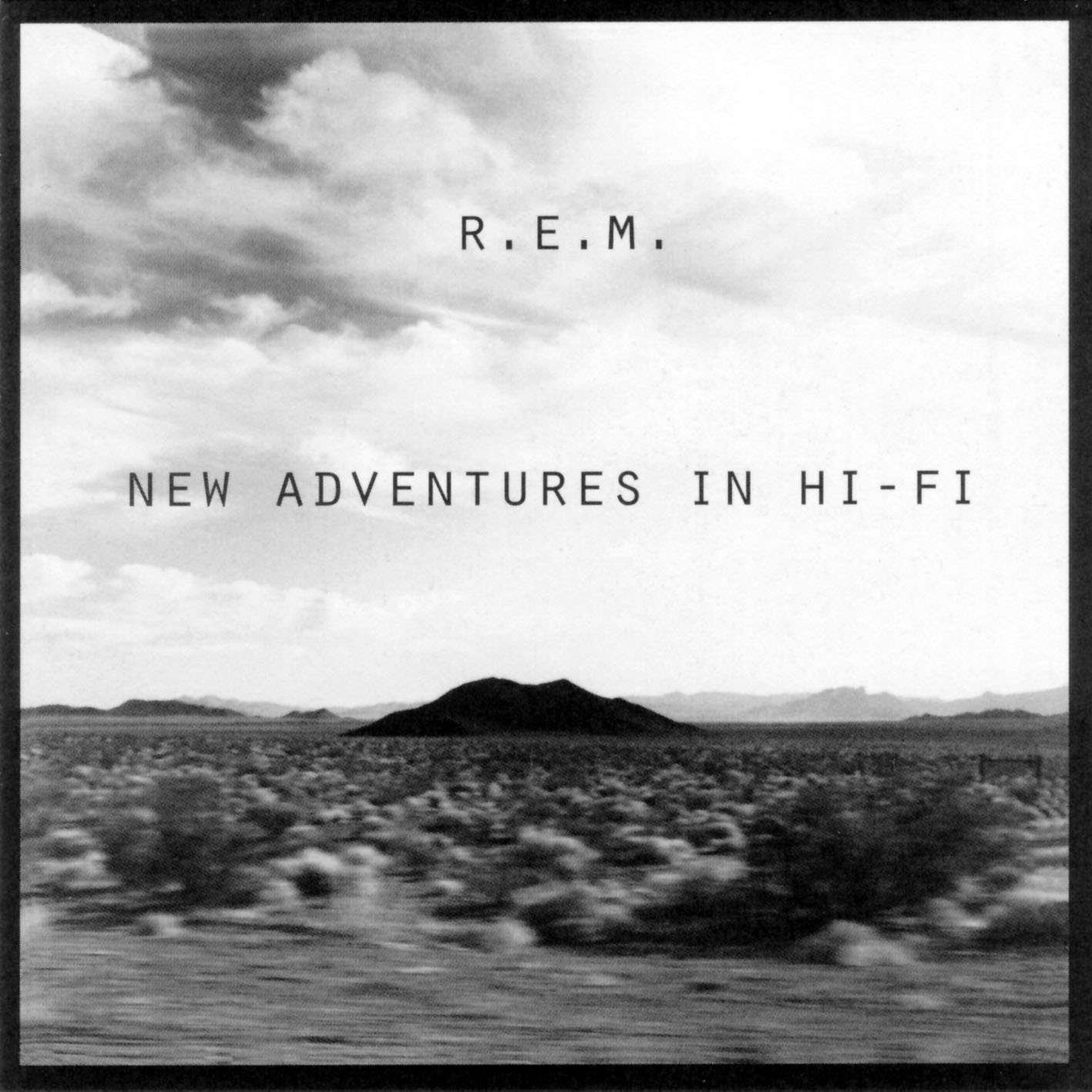Happy 30th Anniversary to R.E.M.’s seventh studio album Out of Time, originally released March 12, 1991.
“The tipping point is that magic moment when an idea, trend, or social behavior crosses a threshold, tips, and spreads like wildfire,” Malcolm Gladwell explains in his acclaimed 2000 debut book The Tipping Point: How Little Things Can Make a Big Difference. For R.E.M., the tipping point arguably arrived in the form of their 1991 album Out of Time, which catapulted the Athens, Georgia bred band from revered college rock heroes to mighty rock-pop powerhouse.
Formed in 1980 by fellow University of Georgia students Michael Stipe (vocals), Peter Buck (Guitar), Mike Mills (bass), and Bill Berry (drums), R.E.M. released their first five studio albums over a five-year span through the independent label I.R.S. Records. On the strength of Murmur (1983), Reckoning (1984), Fables of the Reconstruction (1985), Lifes Rich Pageant (1986), and Document (1987), as well as the anthemic singles “Radio Free Europe,” “So. Central Rain (I'm Sorry),” “Driver 8,” “Fall on Me,” “The One I Love,” and “It's the End of the World as We Know It (And I Feel Fine),” the group cultivated a devout following. Though R.E.M.’s growing fanbase at the time was more extensive than most indie rock bands could claim, their reach was primarily confined to the States, with modest penetration overseas at best.
In 1988, the band signed the first of two mammoth, multi-million dollar deals with major label Warner Bros. Records, who vowed to invest heavily in the group’s worldwide distribution and promotion. Featuring the noticeably more polished, radio-friendly singles “Pop Song 89,” “Stand,” and “Orange Crush,” Green (1988) was their first offering under contract with Warner Bros. and augured the mainstream breakthrough that was just a few years away.
Released in March 1991 amidst the burgeoning alternative rock movement, nearly 10 years after their classic debut single “Radio Free Europe” emerged, Out of Time proved transformative for the band. “It marked the transition from pretty big to really big,” Mills explained to The Guardian in 2014. “Although for us [fame] felt gradual. We were really lucky in that every record up to Automatic for the People (1992) and maybe Monster (1994), sold more than the one before it. So it felt very natural and organic, rather than this big avalanche of notoriety.”
Out of Time also demonstrated that mainstream success was indeed attainable for bands whose DNA and sensibilities were fundamentally indie, paving the way for early-to-mid ‘90s alt-rock megastars like Green Day, Nirvana, Pearl Jam and Smashing Pumpkins in the US, as well as British bands such as Blur, Oasis, and Pulp. In a 1994 Rolling Stone cover story interview, Kurt Cobain declared, “If I could write just a couple of songs as good as what they've written…I don't know how that band does what they do. God, they're the greatest. They've dealt with their success like saints, and they keep delivering great music.” While some fans and pundits admittedly accused R.E.M. of compromising their signature sound and indie-rock cred with Out of Time, Cobain’s sentiments were echoed by the band’s many other musical peers, who recognized and celebrated their undeniable influence, inspiration and integrity, both pre- and post-Out of Time.
Watch the Official Videos:
Upon even the most cursory of listens to Out of Time, it’s immediately evident that the album sounds like no other R.E.M. album that precedes it. Embodying the sound of a band no longer fulfilled by mining the tried-and-true of their past records, it remains the most varied and adventurous song suite the band ever crafted. “To me, Out of Time is a record of challenges," Stipe confided during an interview with the New York Times. "After our 11-month tour ended in 1989 and it came time to write the new album, Peter didn't want to look at an electric guitar, much less play one. Since everyone in the band is something of a multi-instrumentalist, they chose to move over to instruments that were unusual to them.” Signaling the group’s liberation from expectation and routine, acoustic guitar, harpsichord, mandolin, and organ all feature prominently across Out of Time, making for an overall more eclectic and experimental, but no less cohesive listening experience relative to R.E.M.’s previous albums.
Also notable across Out of Time’s eleven songs is the absence of explicitly political lyrics, which have been all but relinquished and replaced by love songs, a nuance that Stipe acknowledged to SPIN Magazine in a 1991 cover story interview. "As a lyricist I shouldn’t be shackled to this image that every song I write has to be about the plight of the homeless or the environment,” Stipe insisted. “You can only go so far writing songs like that and get away with it. I can’t do it all the time, and I don’t want to pigeonhole myself into being a political folk singer in a rock band. Every song on this record is a love song. Anything political is just an undercurrent. That’s something we’ve just never done before. I’ve written love songs, but they were pretty obscure and oblique. These songs deal with every kind of love—except maybe love of country."
Granted, many of Stipe’s lyrics on Out of Time are—perhaps intentionally—cryptic, rendering them devoid of immediately intuitive meaning and open to various interpretations, a notion that Stipe is comfortable with. “I think music is way beyond rational thinking,” Stipe told Rolling Stone. “It doesn't have to make any sense. ‘Half a World Away’ doesn't make sense to anybody but me. And even to me, it's a totally fabricated experience. It's drawn from things that I know or saw on TV or that people I know told me. It's a complete fabrication. But there's something there.”
Unveiled as the lead single three weeks before the album’s release date, the poignant “Losing My Religion,” which eloquently examines obsession and self-doubt in matters of the heart, still stands as R.E.M.’s most successful and recognizable song to date, albeit not necessarily the strongest track on the album. Both the band and Warner Bros. never expected the song to become as ubiquitous as it did, but radio and MTV latched on and propelled the song to stratospheric heights.
While many still invariably, and myopically, associate the album with the aforementioned mega-hit, there are plenty of songs that rightfully qualify as some of R.E.M.’s finest and/or most intriguing of their prolific career. In a twist of irony, considering the conspicuous radio-friendliness of “Losing My Religion” and “Shiny Happy People,” the animated album opener and fourth single “Radio Song” bemoans rote radio-curated playlists, drawing parallels to monotonous relationships which similarly offer little to no solace or gratification. Boogie Down Productions co-founder and hip-hop icon KRS-One makes an unorthodox cameo, concluding the song with a way-too-abbreviated rhyme. As Albumism’s David H. Miller might say, the two gentlemen make for strange bedfellows, but the pairing ultimately works, as KRS-One complements Stipe’s vocals in refreshing fashion.
Although I’ve known plenty of friends and colleagues who share my affection for the Mike Mills-led third single “Near Wild Heaven,” a dazzling exploration of a relationship that approaches but never achieves greatness, far fewer folks have openly championed “Shiny Happy People,” the second single released from the album. Rivaling and surpassing “Stand” and “Man on the Moon” as R.E.M.’s most unabashedly pop-fueled composition of their career, the buoyant “Shiny Happy People” isn’t necessarily the touchy-feely ode to unbridled joy that some might think it is.
Enjoying this article? Click/tap on the album covers to explore more about R.E.M.:
Inspired in part by the Chinese government’s post-Tiananmen Square massacre propaganda posters, the song actually revolves around the notion that such utopian visions of harmony and jubilation are often little more than pretense, contrived to mask the real truths of discontent and disenchantment. Regardless of the song’s true inspirations or whether you care for the song or not, I suspect most can agree that the soaring backing vocals supplied by Kate Pierson, of R.E.M.’s fellow Athens based comrades The B-52’s, are the unequivocal highlight.
All four singles released from Out of Time are sequenced within the album’s first six tracks, which also include the lone instrumental “Endgame,” so it would be easy enough to overlook the LP’s latter half. It would also be a foolish oversight, as a handful of bona fide gems can be found across the closing twenty minutes. A reflection on the eternal quest for fulfillment in life, and the other song featuring Mills’ lead vocals, “Texarkana” is the standout among these, with its sweeping, shimmering guitar-pop melodies subtly reminiscent of “The One I Love.” “Country Feedback,” a plaintive lament about the disintegration of love, and “Half a World Away,” a solemn contemplation of solitude-fueled resignation, represent additional stellar fare.
R.E.M.’s first of two albums to top both the US and UK charts (1994’s Monster the second), Out of Time commanded the upper reaches of critics’ year-end best-of lists and won three GRAMMY Awards in 1992, including Best Alternative Music Album. And while it may not be their greatest album—an honor reserved for their magnum opus, Automatic for the People—Out of Time is a modern rock masterpiece nonetheless. Moreover, it’s the album responsible for making R.E.M. a pervasive and permanent fixture across the rock-pop landscape, a position they would maintain all the way through their amicable breakup in 2011.
LISTEN:
Editor's note: this anniversary tribute was originally published in 2016 and has since been edited for accuracy and timeliness.





